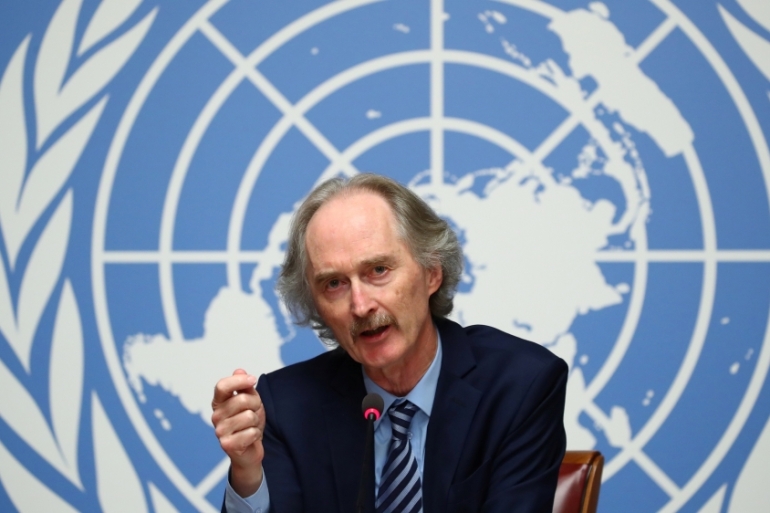Alwaght- United Nations Special Envoy rejected military solution to Syria crisis as “an illusion,” saying that the warring parties are locked in a “strategic stalemate” on the ground for the past 21 months.
Geir Pedersen told the UN Security Council on Monday that it is time to explore whether a political process in Syria can meaningfully move forward next year.
“No one should expect miracles or quick solutions – the path forward will be necessarily incremental. But I hope that this coming year we can work on concrete steps towards the implementation of Security Council resolution 2254,” he said.
The Norwegian diplomat highlighted that the lingering Syria stalemate is “making it increasingly clear that no existing actor or group of actors can determine the outcome of the conflict, and that a military solution remains an illusion.”
Pedersen stated that he remains “actively engaged” in order to convene next year the seventh round of talks between representatives of the Syrian government, moderate opposition groups, and civil society groups over constitutional reforms.
The UN envoy underscored it was important that delegations not only table texts but be ready to commit to revising them, in light of discussions held over recent weeks in Damascus and Istanbul.
In January 2018, an agreement was reached at a Russia-hosted Syrian peace conference in Sochi to form a 150-member committee to draft a new constitution until September 2019, equally represented by the Syrian government, political opposition, and civil society.
A smaller committee of 45 individuals of that same proportion is tasked with negotiating and drafting the new constitutional provisions.
During the Monday meeting of the UN Security Council, UN Under-Secretary-General for Humanitarian Affairs and Emergency Relief Coordination, Martin Griffiths, said the world body continues to deliver aid to millions of Syrians.
He added that two cross-line convoys have lately been deployed in northwestern Syria and that they carried food and other supplies for around 80,000 people altogether.
Griffiths expressed hope that another convoy would arrive in the war-ravaged country in January as planned.
“We will continue to do all in our power to facilitate these cross-line convoys – convoy once a month, delivery every week. And I call upon all parties to facilitate, to help, and not to block the implementation of our plan,” he said.
“And I regret to say that the humanitarian operation simply does not have sufficient funds to provide the basic shelter, heating, and warm clothes to all of those in need,” Griffiths told the Security Council.
'Syria humanitarian situation complicated due to occupation, sanctions'
Syria’s permanent representative to the United Nations, Bassam al-Sabbagh, called for the immediate and unconditional removal of unilateral sanctions imposed by the United States and European Union against his country, emphasizing that the coercive measures have resulted in the suffering of the Syrian nation.
Sabbagh told the Security Council that UN Secretary General António Guterres has ignored the catastrophic impacts of unilateral and illegal sanctions on Syria.
“Any objective evaluation of the humanitarian situation in Syria would reveal that the Turkish military occupation, the forces’ crimes, and their support for terrorist groups are the main reasons behind the status quo,” he said.
He highlighted that Damascus has put in a lot of effort and greatly assisted the UN and its agencies in order to implement Security Council resolution 2585.
Sabbagh stressed that the establishment of stability across Syria requires the total elimination of terrorist groups as well as the full withdrawal of US and Turkish occupation forces from the Arab country.
Since 2011, Syria has been gripped by foreign-backed militancy, as a result of which the Daesh and other terrorist groups emerged in the country.
The Syrian government has repeatedly condemned the US and the EU for waging economic terrorism on the country through their unilateral sanctions, holding them responsible for the suffering of the Syrian people, especially now that the country is grappling with a deadly coronavirus outbreak.
Damascus has been critical of the United Nations for keeping silent on the destructive role of the US and EU, among other parties supporting terrorism in Syria.



























